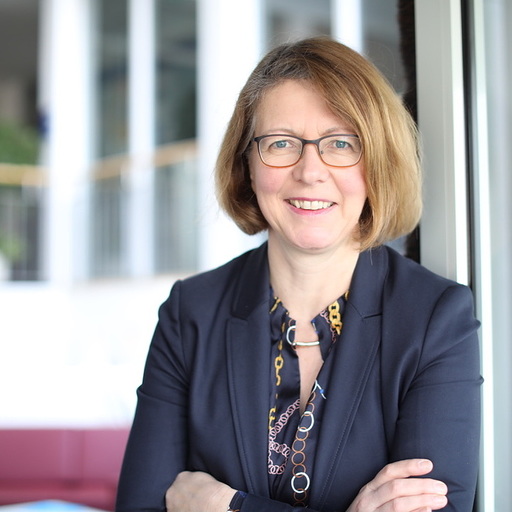
Prof. Dr. Susanne Boll – Speaker of the Priority Program
University of Oldenburg
Bio: Susanne Boll is a Professor for Media Informatics and Multimedia Systems in the Department of Computing Science at the University of Oldenburg, Germany. In 2012, she also joined the ranks of the board of the OFFIS – Institute for Information Technology in Oldenburg, an associated research institute of the University of Oldenburg. Susanne Boll received her diploma degree with distinction in Computer Science from the Technical University of Darmstadt, Germany, in 1996. This was subsequently followed by a doctorate with distinction from the Technical University of Vienna, Austria, in 2001. Susanne Boll is a lead researcher in a number of international and national research projects in the field of intelligent user interfaces. She leads the Human–Machine Cooperation Competence Cluster, which drives the activities of the OFFIS research institute in this field. Susanne Boll has acquired and led over 50 research projects since 2002, funded by national as well as international research foundations and industry partners. Her competitive research results are published in the most prestigious conferences in the field of HCI, including CHI, MobileHCI, and Pervasive. Overall, she has published more than 200 articles in books, journals, and proceedings of international conferences and workshops in the fields of semantic retrieval, mobile systems, geographic information retrieval, and intelligent user interfaces. She is an active member of the scientific community, has co-organized several international events, is a member of several editorial boards, and has been a member of more than 100 Technical Program Committees.
Role in the Priority program: Susanne Boll is the coordinator of the priority program. She is also a Principal Investigator in the RIME and GrIPSs projects.

Prof. Dr. Albrecht Schmidt
Ludwig-Maximilians-Universität München
Bio: Albrecht Schmidt is a professor in the computer science department of the Ludwig-Maximilians-Universität München in Germany. In his research, he investigates the inherent complexity of human-computer interaction in ubiquitous computing environments, particularly in view of increasing computer intelligence and system autonomy. He coined the term implicit interaction. Albrecht has co-chaired several SIGCHI conferences and is on the editorial board of ACM TOCHI. In 2018 he was elected to the ACM CHI Academy.
Role in Priority program: Albrecht Schmidt is a P.I in the project – Illusionary Surface Interfaces (IlluSurf).

Prof. Dr. phil.habil. Anke Huckauf, General Psychology
Ulm University
Bio: Anke Huckauf studied psychology and received her PhD from RWTH Aachen. She headed a Junior professorship at the faculty of Media, Bauhaus-University in Weimar. Since 2009, she has held a full General Psychology professorship at Ulm University. Her main interests are perception out-of-focus and gaze-based interaction.
Role in Priority program: Anke Huckauf is a P.I in the project – Gaze-Assisted Scalable Interaction in Pervasive Classrooms.

Prof. Dr.-Ing. Andreas Butz
LMU Munich
Bio: Andreas Butz finished his PhD in Computer Science in 1997 at Saarland University. After his PostDoc time at Columbia University, New York, and 2 years as the CEO of a startup company, he returned to academia with an Emmy Noether grant funded by DFG and was appointed a professor at LMU in 2004, where he is currently leading the Human-Computer Interaction group. In 2010, his work on human-centred intelligent environments was awarded the Alcatel Lucent Research Award.
Role in Priority program: Andreas Butz is a P.I in the project – Personalities for Machinery in Personal Pervasive Smart Spaces (PerforM).

Prof. Dr. Antonio Krüger
Deutsches Forschungszentrum für Künstliche Intelligenz GmbH (DFKI) & Universität des Saarlandes
Bio: Antonio Krüger is CEO and scientific director of the German Research Center for Artificial Intelligence GmbH (DFKI) and head of the “Cognitive Assistants” department at DFKI. He is a full professor of Computer Science at Saarland University (since 2009), Head of the Ubiquitous Media Technology Lab and scientific director of the Innovative Retail Laboratory (IRL) at DFKI.
Prof. Krueger is an internationally renowned expert on Man-Machine-Interaction and Artificial Intelligence. Antonio has published more than 200 scientific articles and papers in internationally recognized journals and conferences and is a member of several steering committees, editorial boards and scientific advisory committees.
Role in Priority program: Antonio Krüger is a P.I in the project – Gestural Interaction Paradigms for Smart spaces (GrIPSs).

Dr. Dimitar Valkov
Bio: Dimitar Valkov was a post-doctoral researcher at the Westfälische Wilhelms-Universität Münster. His current research interests are virtual reality and natural user interfaces, with a special focus on perception-based interaction. He has received his academic degrees from the University of Sofia and the Westfälische Wilhelms-Universität Münster, where he also received a PhD in Computer Science.
Role in Priority program: Dimitar Valkov is a P.I in the project – User Interaction Concepts based on Prehensile Hand Behavior.
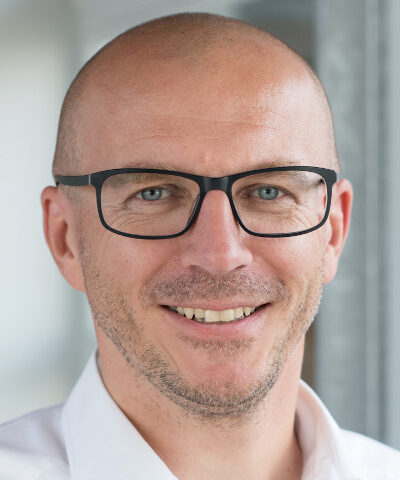
Prof. Dr. Enrico Rukzio
Ulm University
Bio: Enrico Rukzio is a Full Professor of Computer Science at Ulm University, where he heads the Human-Computer-Interaction group within the Institute of Media Informatics. Prior to his current position, he was an Assistant Professor at the Ruhr Institute for Software Technology (University of Duisburg-Essen) and a RCUK academic fellow & lecturer at the School of Computing and Communications at Lancaster University. He holds a PhD in Computer Science from the University of Munich.
Role in Priority program: Enrico Rukzio is a P.I in the project – Gaze-Assisted Scalable Interaction in Pervasive Classrooms.
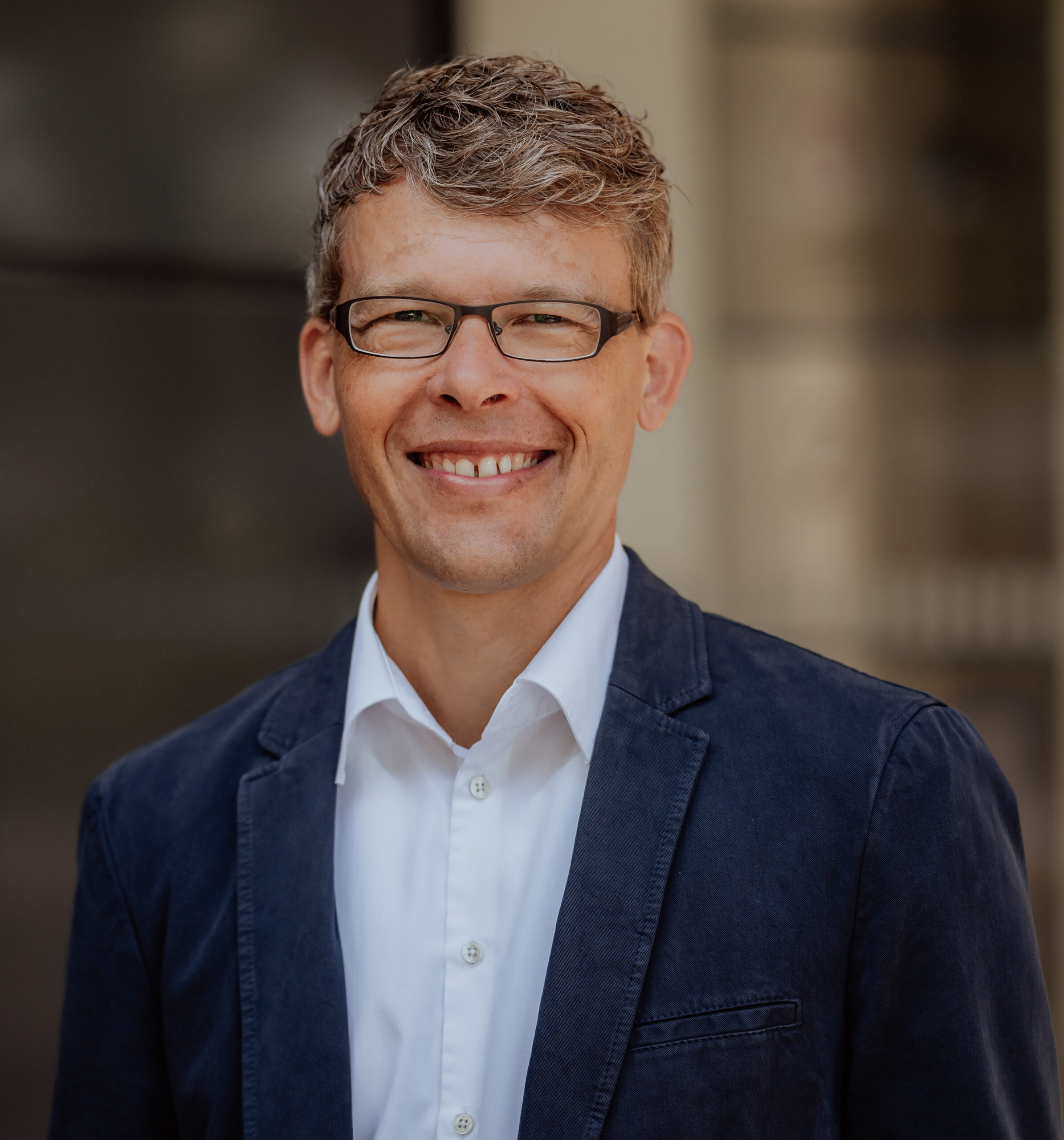
Prof. Dr. Florian Alt
LMU München, Munich
Bio: Florian Alt is a full professor of Media Informatics at LMU Munich. His research is at the crossroads of HCI and IT security. In particular, Florian is interested in how novel, secure user interfaces can be built that blend with how we interact with computing devices. Specific research areas include but are not limited to behavioural biometrics, social engineering, usable security in smart homes, secure physiological user interfaces, as well as security and privacy mechanisms for Mixed Reality. Florian co-authored more than 200 publications, many in leading venues of his field, such as ACM SIGCHI, ACM UIST, ACM PACM IMWUT, and SOUPS. He is the steering committee chair of the MUM conference series and chaired the program committee of various ACM conferences.
Role in the Priority program: Florian Alt is a PI in the projects “Design and Evaluation of Scalable User Interfaces for Communication and Control of Data Protection Aspects in Mixed Reality” and “Designing and Evaluating Scalable Behavioral Biometrics Systems for Pervasive Computing Environments“.

Dr.-Ing. Florian Niebling
Bio: Florian Niebling received his doctorate in interactive parallel real-time graphics from the University of Stuttgart in 2013. He is currently working as a research group leader at the chair for Human-Computer Interaction at the Julius-Maximilians-Universität Würzburg, Germany. His research interests include interaction with data in virtual reality (VR), augmented reality (AR) and on the desktop, software engineering of complex systems in parallel and distributed computing environments as well as scalable post-processing and visualization of large datasets.
Role in Priority program: Florian Niebling is a P.I in the project – Beyond Safety and efficiency in acute care: The experience of an embodied staff-environment interaction.
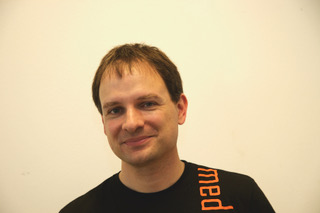
Prof. Dr. Jan Borchers
RWTH Aachen University
Bio: Jan Borchers is full professor of computer science and head of the Media Computing Group, an endowed Chair in the Computer Science Department at RWTH Aachen University. With his research group, he explores the field of human-computer interaction, with a particular interest in new user interfaces for soft robotics, 3D printing and personal fabrication, augmented reality, mobile, wearable, and tangible computing, interfaces for software development, and interactive guides and exhibits. In 2009, he opened Germany’s first Fab Lab. Jan established his group in 2003 and pioneered conducting modern HCI academic research and teaching in Germany. It soon became a leading German lab for archival publications at CHI, the top international conference in Human–Computer Interaction. Before joining RWTH, he held faculty positions at Stanford University and ETH Zurich, after receiving his PhD ‘summa cum laude’ in computer science from Darmstadt University of Technology in 2000. His PhD thesis, A Pattern Approach to Interaction Design, became the first book to bring the concept of design patterns to Human–Computer Interaction. He is a member of ACM, SIGCHI, SIGCHI Germany, and GI, and introduced the Interactivity format to the CHI conference in 2005. He has also provided usability talks, trainings and consulting, and design, prototyping, and evaluation of user interfaces, for clients such as AirBus, Apple, ARD, Bayer, Children’s Museum Boston, Daimler, Handelsblatt, OTIS, Scout24, TEDx, and Deutsche Telekom. You can find him on Twitter at @borchers.
Role in Priority program: Jan Borchers is a P.I in the project – Rich Interactive Materials for Everyday Objects in the home (RIME).

Prof. Dr. Jürgen Steimle
Saarland University, Saarland Informatics Campus
Bio: Jürgen Steimle is a full professor of Computer Science at Saarland University, where he directs the HCI Lab. Previously he held appointments at the Max Planck Institute for Informatics, at Massachusetts Institute of Technology and TU Darmstadt. His research investigates user interfaces offering rich material properties to enable more effective, expressive, and engaging computer interactions. He received an ERC Starting Grant, best paper awards at CHI and UIST, and the Best Dissertation Award of the German Informatics Society.
Role in Priority program: Jürgen Steimle is a P.I in the project – Rich Interactive Materials for Everyday Objects in the home (RIME).

Prof. Dr.-Ing Katrin Wolf
Berliner Hochschule für Technik
Bio: Katrin Wolf is a professor of Human-Computer Interaction at the Berlin University of Applied Sciences and Technology. Her research interests lie at the intersection of human–computer interaction and interaction design, focusing on how to make novel technologies more usable and useful. To date, her research has focused on technologies and domains including mobile and wearable systems; virtual, augmented and mixed reality, as well as interactive exhibitions.
Role in Priority program: Katrin Wolf is a P.I in the project – Illusionary Surface Interfaces (IlluSurf).

Prof. Dr. Kristof van Laerhoven
University of Siegen
Bio: Kristof Van Laerhoven heads the Ubiquitous Computing Group at the University of Siegen. His research focuses primarily on small portable and embedded computer systems for recognizing, monitoring, responding and learning the phenomena around them. Previously, he was a Professor of Embedded Systems at the University of Freiburg, headed a junior research group for embedded sensor systems at TU Darmstadt and did his PhD at Lancaster University (UK). He co-chaired the UbiComp / ISWC 2020 conference in Cancun, Mexico.
Role in Priority program: Kristof Van Laerhoven is a P.I in the project – Pattern-based Wearable Assistants for Safety-Critical Human-Computer Interaction in Control Rooms (PervaSafe Computing).
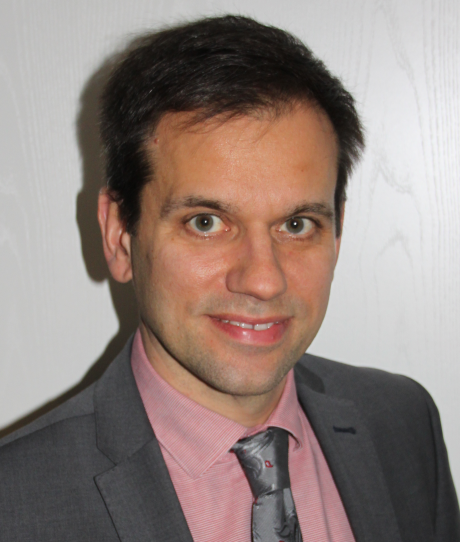
Prof. Dr.-Ing. Lars Linsen
Westfälische Wilhelms-Universität Münster
Bio: Lars Linsen is a Full Professor of Computer Science at the Westfälische Wilhelms-Universität Münster. He received his academic degrees from the Universität Karlsruhe (TH), including a Ph.D. in Computer Science. Subsequent affiliations were the University of California, Davis, U.S.A., as post-doc, the Ernst-Moritz-Arndt-Universität Greifswald as an assistant professor, and Jacobs University, Bremen, as an associate and full professor, respectively. His research interests are in interactive visual data analysis.
Role in Priority program: Lars Linsen is a P.I in the project – User Interaction Concepts based on Prehensile Hand Behavior.
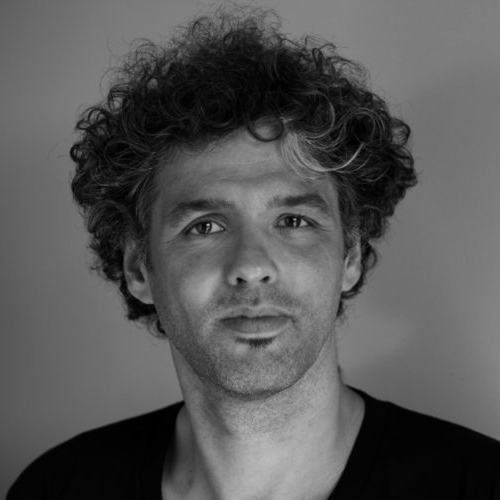
Prof. Dr. Marc Hassenzahl
University of Siegen
Bio: Dr. Marc Hassenzahl is a professor for “Ubiquitous Design / Experience and Interaction” at the University of Siegen, Germany. He combines his training in psychology with a love for interaction design. With his group of designers and psychologists, he explores the theory and practice of designing pleasurable, meaningful and transforming interactive technologies. Marc is the author of “Experience Design. Technology for all the right reasons” (MorganClaypool), co-author of “Psychologie in der nutzerzentrierten Produktgestaltung. Mensch-Technik-Interaktion-Erlebnis” (“People, Technology, Interaction, Experience”) (Springer, with Sarah Diefenbach) and many peer-reviewed papers at the seams of psychology, design research and interaction/industrial design.
Role in Priority program: Marc Hassenzahl is a P.I in the project – Aesthetics of Perfomative Interaction for Pervasive Computing Environments in Public Spaces (AIPPS).

Jun.-Prof. Dr.-Ing. Marc Herrlich
Bio: Marc Herrlich is an assistant professor (junior professor) for Serious Games Engineering in the Department of Electrical and Computer Engineering at TU Kaiserslautern. Before becoming a professor in Kaiserslautern, he worked as a research assistant and later senior researcher at the Digital Media Lab at the University of Bremen. His research focuses on novel, beyond-desktop interaction techniques, sometimes summarized as “reality-based interaction techniques” and user-centred application, adaptation, and personalization of serious games and gamification within different domains.
Role in Priority program: Marc Herrlich is a P.I in the project – Scalable Pervasive Health Environments.

Dr. Marc Hesenius
University of Duisburg-Essen
Bio: Marc Hesenius is a postdoc researcher at the Institute for Software Engineering, University of Duisburg-Essen. His research revolves around the engineering aspects of data-driven applications and novel HCI techniques. One particular focus is the development of methods to solve HCI issues within the software engineering lifecycle.
Role in Priority program: Marc Hesenius is a P.I in the project – SimGest – Simulation of Scalable Gestures in Human-Computer Interaction.

Prof. Dr. Niels Henze
University of Regensburg
Bio: Dr. Niels Henze is a professor for Media Informatics at the University of Regensburg, Germany. He is interested in understanding how computers are used today, how they will be used in the future, and how we can improve the interaction with computers. One focus is to understand the psychological and physiological effects of being immersed in mixed reality. He, for example, explores the effects of avatars on physical performance and psychological response. Another focus is the use of models to improve the interaction, for example, using predictive models to reduce the negative effect of latency.
Role in Priority program: Niels is a P.I in the project – Manipulation of virtual self-perception through visual-haptic avatar parameters.

Prof. Dr. rer. nat. Rainer Malaka
Universität Bremen
Bio: Rainer Malaka is a Professor of Digital Media at the University of Bremen since 2006. The focus of Dr. Malaka’s work is on Digital Media, Mobile and Ubiquitous Interaction, and Entertainment Computing. At the University of Bremen, he directs a Graduate College, “Empowering Digital Media”, funded by the Klaus Tschira Foundation. He is also director of the TZI, the Center for Computing Technologies at the University of Bremen. Before joining the University of Bremen, he led the research group Personal Memory at the European Media Lab (EML) in Heidelberg. Rainer Malaka is the German representative and chairman of IFIP’s technical committee TC14 for Entertainment Computing. Rainer Malaka is a member of the editorial boards and has been Chair and PC chair of various Workshops and conferences (line IFIP-ICEC, Smart Graphics, German HCI conference). Dr. Malaka received several awards for his scientific work: e.g., the Klaus Tschira Award for Understandable Science, the Research and Innovation Award of the RheinNeckar Foundation and various best paper awards.
Role in Priority program: Rainer Malaka is a P.I in the project – Scalable Pervasive Health Environments.
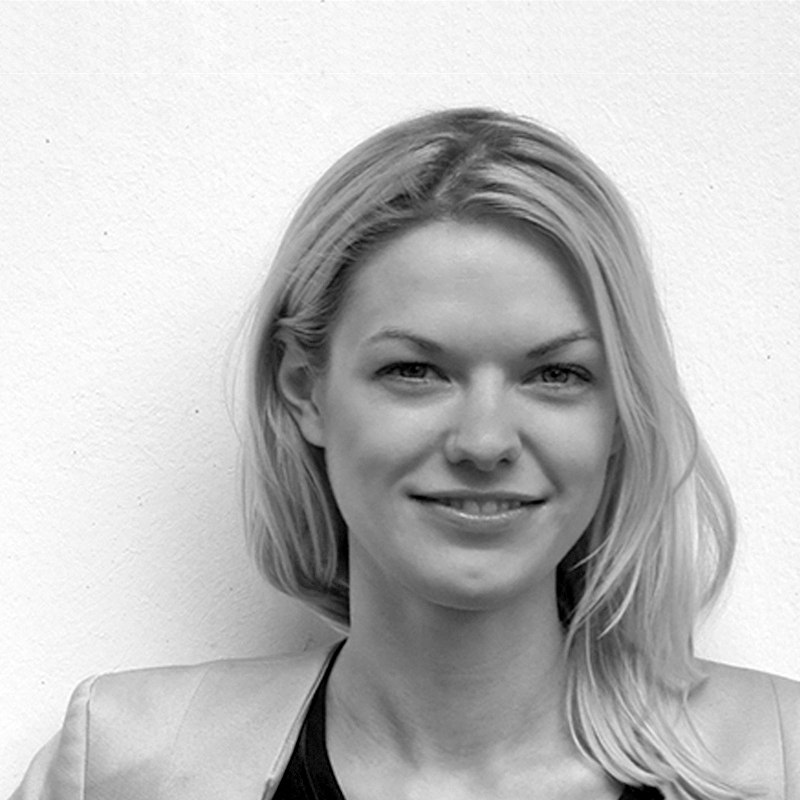
Prof. Dr. Sarah Diefenbach
LMU Munich
Bio: Since 2007 Sarah Diefenbach is engaged in research on user experience, the design of interactive products and experiential qualities as an (economic) success factor. Current research topics focus on the consequences of technology in everyday life, such as social media, fitness gadgets or the smartphone as a constant companion. In this context, her studies explore the individual subjective wellbeing and happiness as well as changes regarding social norms and the society as a whole.
Role in Priority program: Sarah Diefenbach is a P.I in the projects – Personalities for Machinery in Personal Pervasive Smart Spaces (PerforM) and Aesthetics of Performative Interaction for Pervasive Computing Environments in Public Spaces (AIPPS).
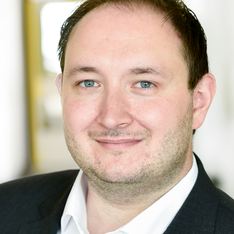
Prof. Dr. Stefan Schneegass
University of Duisburg-Essen, Essen
Bio: Stefan Schneegass is an Assistant Professor of human-computer interaction at the University of Duisburg-Essen. He is interested in researching the crossroad of human-computer interaction and ubiquitous computing. One focus of his current research is the development of novel authentication and identification mechanisms.
Role in the Priority program: Stefan Schneegass is a P.I in the project “Designing and Evaluating Scalable Behavioral Biometrics Systems for Pervasive Computing Environments“.
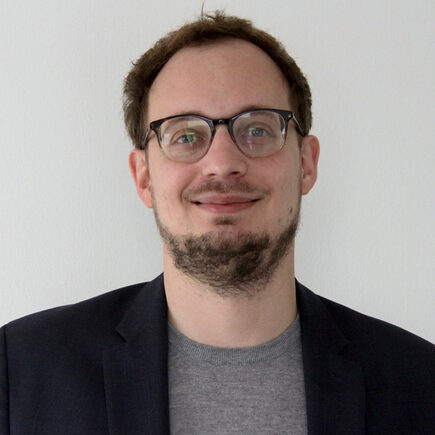
Prof. Dr. Tilo Mentler
Hochschule Trier
Bio: Prof. Dr. Tilo Mentler is a professor of Human-Computer Interaction and User Experience at Trier University of Applied Sciences since 2020. He researches and teaches systematic human-centered development of interactive systems, especially in the context of demanding activities (e.g. mobile devices in medicine, multi-screen workstations in control rooms, augmented and virtual reality for emergency services). Previously, Prof. Dr. Tilo Mentler was a junior professor for Safety-Critical Human-Machine Systems in Technology and Medicine at the University of Lübeck. He is the spokesman of the Human-Machine Interaction in Safety-Critical Systems section of the German Informatics Society (GI), a member of the IFIP Advisory Board of the GI and GI representative in the IFIP Domain Committee on IT in Disaster Risk Reduction.
Role in Priority program: Tilo Mentler is a P.I in the project – Pattern-based Wearable Assistants for Safety-Critical Human-Computer Interaction in Control Rooms (PervaSafe Computing).

Tobias Grundgeiger, PhD
Lehrstuhl für Psychologische Ergonomie, Julius-Maximilians-Universität Würzburg
Bio: Tobias Grundgeiger received a PhD from the University of Queensland, Brisbane, Australia, in applied cognitive psychology in 2011. He works as a senior lecturer at the Julius-Maximilians-Universität Würzburg, Germany. His research interests include distractions and interruptions, visual attention distribution, and cognitive aids. He is particularly interested in the healthcare technology design that improves safety and users’ experience.
Role in Priority program: Tobias Grundgeiger is a P.I in the project – Beyond Safety and efficiency in acute care: The experience of an embodied staff-environment interaction.